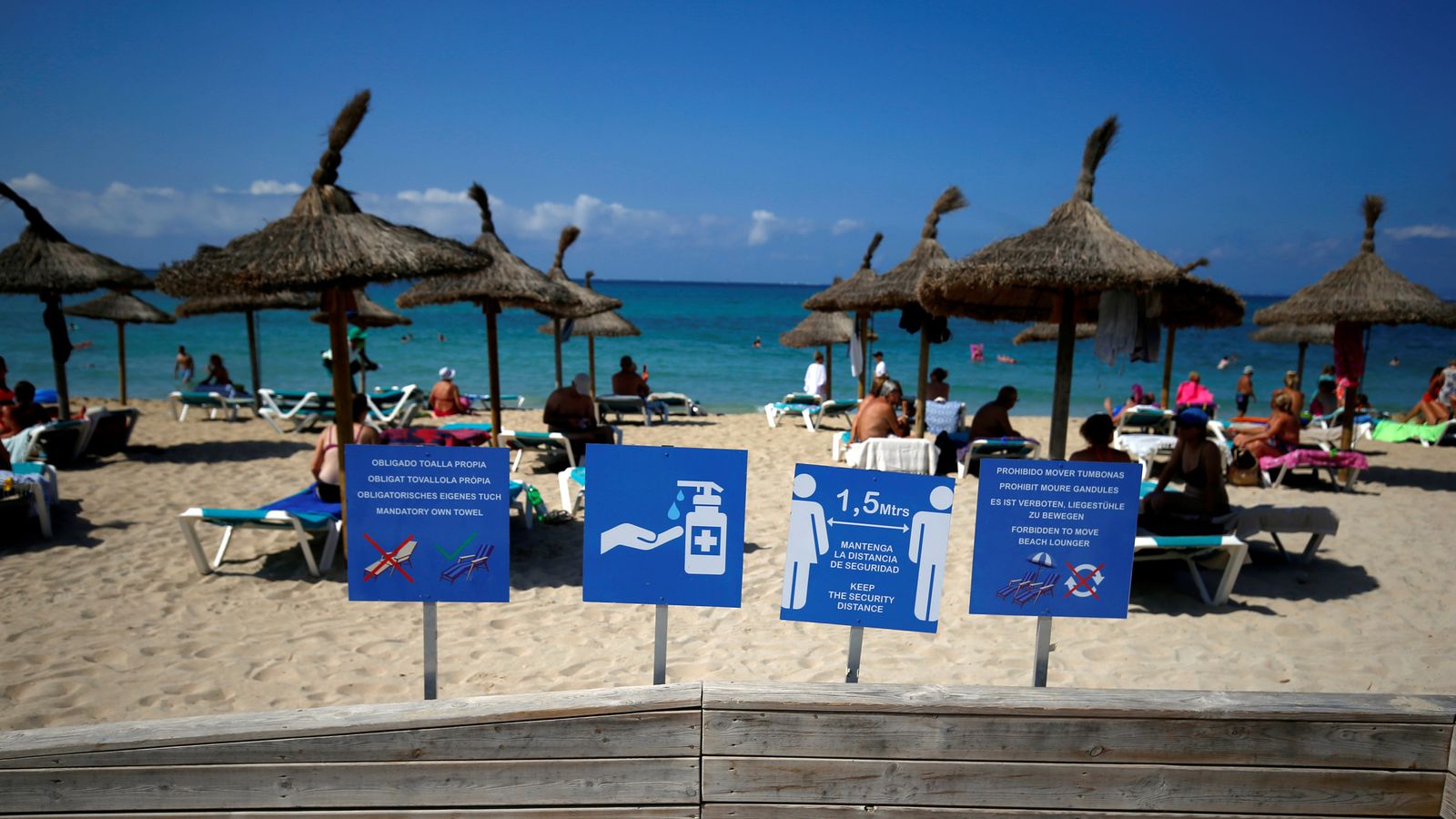Attempting to take a holiday abroad will result in a £5,000 fine under new coronavirus laws.
The legislation covering COVID-19 restrictions includes a ban on leaving the UK without a reasonable excuse – with the hefty fine for those breaking the rule.
The new rules will also mean protests will be considered a permitted exception to the ban on mass gatherings.
MPs will vote on the laws – officially titled the Health Protection (Coronavirus, Restrictions) (Steps) (England) Regulations 2021 – on Thursday.
If approved they would come into effect next Monday – 29 March.
Please use Chrome browser for a more accessible video player
It forms part of a move from ministers to extend measures contained within the Coronavirus Act until October.
Some Conservative MPs are set to rebel, but the government is expected to easily win the support of the Commons.
On foreign travel, the new law states that no-one can “leave England to travel to a destination outside the United Kingdom, or travel to, or be present at, an embarkation point for the purpose of travelling from there to a destination outside the United Kingdom” without a reasonable excuse.
Fines of £5,000 can be issued to those who break this rule, according to the regulations.
A £200 fixed penalty notice can also be issued to those who fail to fill in a travel declaration form, which includes personal details and reason for travel, for those leaving the UK.
There are a number of exemptions to the ban, which are travel for:
• Work
• Study
• Legal obligations or to vote
• Moving, selling or renting property
• Childcare reasons or to be present at a birth
• Visiting a dying relative or close fried
• Attending a funeral
• Getting married or attending the wedding of a close relative
• Medical appointments
• Escaping a risk of harm
The ban does not apply to those travelling to the common travel area of the Channel Islands, Isle of Man and the Republic of Ireland – unless that is not the final destination.
Please use Chrome browser for a more accessible video player
Demonstrations will be considered a permitted exception to the ban on mass gatherings, provided it is “organised by a business, a charitable, benevolent or philanthropic institution, a public body or a political body”.
Organisers will also have to take the “required precautions in relation to the gathering”.
This is likely to include making sure people wear face coverings and maintain social distancing.
The move comes after more than 60 MPs and peers signed a letter saying that allowing the police to criminalise people for protesting “is not acceptable and is arguably not lawful”.
The Metropolitan Police faced criticism earlier this month for its handling of a vigil in memory of Sarah Everard, with officers grabbing several women and leading them away in handcuffs.
The signatories to the letter said the “shocking scenes” were “entirely avoidable”, arguing the government should have given clear guidance to police forces and ensured protests were exempt from the ban on gatherings.
Please use Chrome browser for a more accessible video player
The need for these rules must be reviewed by 12 April, according to the regulations, and at least once every 35 days after that.
The laws expire on 30 June, unless they are scrapped or changed before that.
The legislation also sets out a series of “steps” for easing lockdown, in line with the government’s roadmap for relaxing restrictions set out by Boris Johnson last month.
Step 1 (29 March) allows six people to meet up outside but restricts indoor gatherings of two or more people.
Step 2 (12 April) would see non-essential shops reopen, along with hairdressers and salons and outdoor areas in hospitality venues. Weddings and wakes will be able to take place with up to 15 people.
Step 3 (17 May) would see groups of six allowed to meet indoors and gatherings of up to 30 people outside.






















